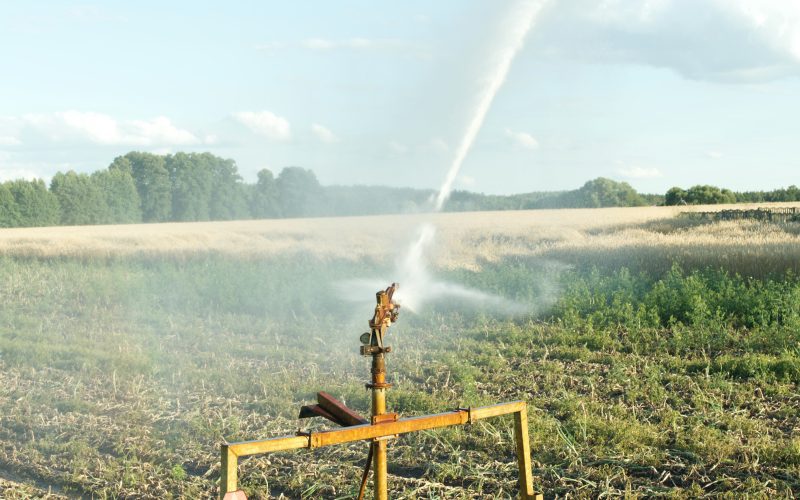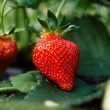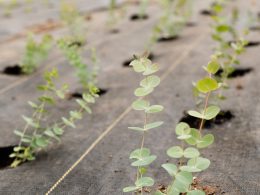Water is essential to agriculture, but with the world’s population rapidly growing and climate change affecting weather patterns, sustainable water use in farming has become more crucial than ever. The overuse of fresh water resources can lead to scarcity and harm crops, impacting food production globally. Fortunately, science-driven solutions are paving the way for a brighter future for sustainable water use in agriculture. In this blog post, we’ll explore these solutions and their potential impact on our world’s food supply chain.
The water crisis in agriculture
One of the most significant challenges facing agriculture today is the water crisis. The farming industry accounts for around 70% of global freshwater consumption, putting a tremendous strain on our planet’s water resources. Many regions worldwide are struggling with droughts and other weather-related disasters that impact crop yields.
Water scarcity has far-reaching consequences beyond just agricultural production. In many parts of the world, it can lead to food insecurity, higher prices for consumers, and economic instability. Furthermore, overusing freshwater resources can harm aquatic ecosystems by reducing stream flows or degrading water quality.
In addition to natural factors such as climate change and weather patterns affecting agricultural output, human activities such as pollution also contribute to the global water crisis in agriculture. Pesticides and fertilizers used in farming operations often make their way into local bodies of water through runoff or leaching from soil.
Addressing this crisis requires innovative solutions that prioritize sustainable use practices while maintaining efficient productivity levels. Fortunately, several promising techniques and technologies have emerged that could help us overcome these challenges in agriculture’s future sustainability efforts.
Solutions to sustainable water use in agriculture
Sustainable water use in agriculture is an essential approach towards conserving this precious resource. There are several science-driven solutions that farmers and other stakeholders can implement to promote sustainable water use in agricultural practices.
One solution is the adoption of precision irrigation methods such as drip irrigation, which delivers water directly to plant roots while minimizing losses due to evaporation or runoff. Subsurface drip irrigation also helps reduce weed growth and improve crop yield by delivering nutrients and water straight to the plant’s root system.
Another promising technique for sustainable water use in agriculture is soil moisture monitoring using sensors. Farmers can monitor their fields’ soil moisture content remotely, allowing them to optimize watering schedules according to actual needs rather than guesswork.
Plant breeding programs that incorporate drought-resistant varieties with improved stress tolerance are also gaining momentum globally as a key strategy towards achieving sustainable water use in agriculture. These crops require less watering, making them ideal for arid regions where freshwater resources are scarce.
Recycling wastewater from cities and industries could offer a viable alternative source of irrigation for farms located near urban areas or industrial complexes. This method not only provides an additional source of clean water but also reduces the amount of wastewater discharged into rivers and oceans.
In summary, there are various science-based solutions available today that can help promote sustainable water use in agriculture without compromising yields or farmer livelihoods.
The future of sustainable water use in agriculture
The future of sustainable water use in agriculture is promising, thanks to science-driven solutions that can help farmers optimize their irrigation practices. As the global population continues to grow and climate change threatens water resources, it’s crucial for the agricultural sector to adopt sustainable practices.
One key solution is precision irrigation technology, which uses sensors and data analysis tools to determine exactly how much water crops need at any given time. This reduces waste and ensures that plants receive just enough moisture without being overwatered.
Another important trend is the use of drought-tolerant crops, which are able to thrive with less water than traditional varieties. Plant breeding programs are working on developing new crop strains that require even less water while still producing high yields.
In addition, there is increasing interest in alternative sources of irrigation water beyond traditional freshwater sources such as rivers and groundwater. These include treated wastewater from cities or desalinated seawater. While these options may be more expensive initially, they offer a reliable source of non-potable water for agriculture.
By adopting science-based approaches like precision irrigation technology and utilizing innovative solutions like drought-tolerant crops and alternative sources of irrigation water, we can create a more sustainable future for agriculture – one where we’re able to nourish growing populations without depleting our precious freshwater resources.
Conclusion
Sustainable water use in agriculture is not only necessary but also achievable. Science-driven solutions such as precision irrigation and drought-resistant crops have already shown promise in reducing water usage while increasing crop yields. However, it is important to remember that implementing these solutions will require a concerted effort from farmers, policymakers, and consumers alike.
By working together towards sustainable water use practices in agriculture, we can ensure a brighter future for our planet’s ecosystems and food security. Let us continue to prioritize the conservation of this precious resource so that future generations may thrive on a healthy and resilient planet Earth.











